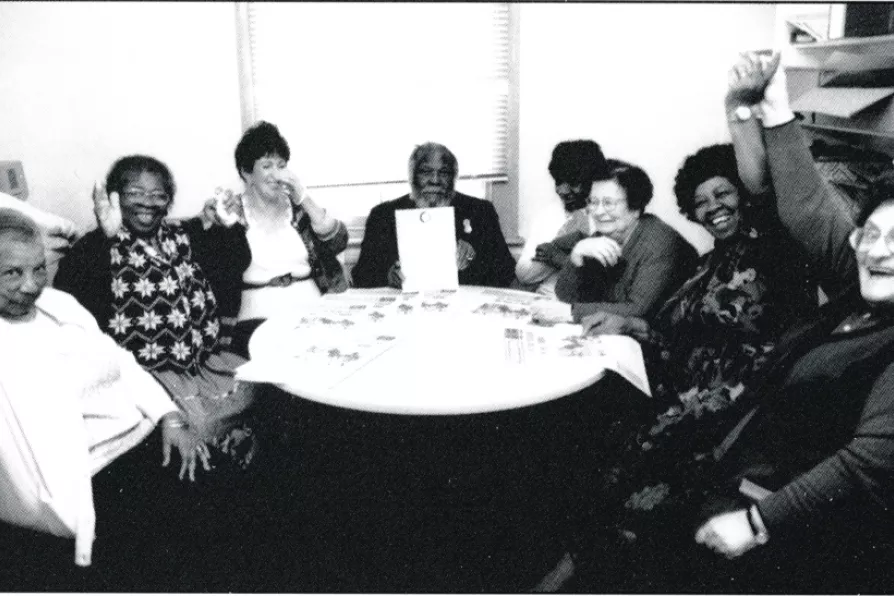This weekend, the NEU holds a special conference to debate changing its approach to organising teaching assistants, which a 2017 TUC agreement forbids. General secretary DANIEL KEBEDE outlines the choices before delegates
Old, female and up for the fight
We must not concede to an ideology that belittles older women and makes us invisible in public places, argues JULIA BARD

 The Hackney Pensioners press team
The Hackney Pensioners press team
ALL through the 1990s I worked with a group of old people who produced a campaigning newspaper called Hackney Pensioners Press.
I have dithered about using the word “old” in that first sentence. It is such a powerfully pejorative term that I almost censored myself, afraid that it would deter people from reading on.
But that was what the editorial group called themselves, because that was what they were. They would not allow the word “old” to be used to downgrade and discredit them.
Similar stories

Sisters came together last weekend for the landmark launch of a new women’s group. ROS SITWELL reports

It’s tiring always being viewed as the ‘wrong sort of woman,’ writes JENNA, a woman who has exited the sex industry

Decades after Dale Spender’s groundbreaking work on how language embeds male dominance, the struggle to reshape words that accurately reflect women’s experiences remains both vital and unfinished, writes JULIA BARD

Persistent inequality for women shows we still have a long way to go, but Wales TUC leader SHAVANAH TAJ is confident we can build a fairer country when we work together










